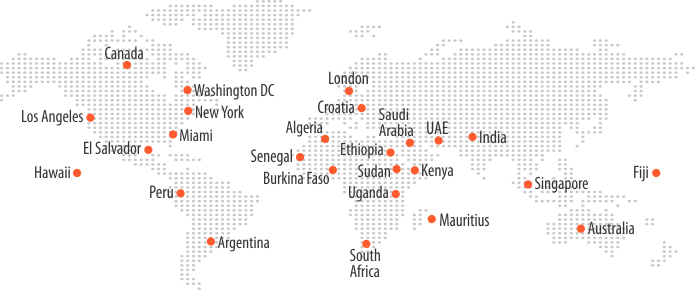Can the Global Wholesale Market be the next Phoenix?

The year 2020 has been an eye-opener for the market as a whole. All the industries have seen paradigmatic changes in the way they operated and generated revenue before health scare as well as the looming economy threat due to this. The wholesale voice business in particular has been in the spot due to the stiff competition with the voice OTT providers for the past few years. This battle has threatened the revenue generating potential of the global wholesale carrier market.
However, we must note that some of the biggest OTT providers, over the past few years, have invested heavily in the fibre systems or the submarine cables. Since these top players have no dearth of capital, industry support and customer base, the trend has created an existential crisis for the wholesale carriers. These disruptions are a result of changes in regulations, technology, business models, and toughening competition. These factors contributed to the falling revenues for the wholesale voice carrier community with a need for an evolved wholesale ecosystem.
Silver Lining for the Wholesale Voice Carriers
Addressing Capacity Demands
Offer quality capacity and manage international communications, serving the needs of retailers, mobile network operators and global enterprises. However, like other industries, this will only be the case for those who are willing to embrace the disruption caused by the digital transformation.
Digital Services
There is an increasing demand for data, cloud and digital services. An influx of data in the network essentially means that there is a market for new fiber routes, more subsea or terrestrial cables, and better networking to cope with the increased demand. Similarly, more data flowing through the network means a more significant risk and impact in the event of network outages. Wholesale carriers must focus on building strong network infrastructure through diversity, resilience and high availability.
Diversification
Offer a range of managed data center services, co-location space and global internet connections. These capabilities are being further enhanced with support for cloud, Network Function Virtualization (NFV) and Software Defined Networking (SDN). If they do not evolve with the digital transformation, they will eventually become obsolete. Several major wholesale carriers are getting into partnerships to roll out new services, especially for SMEs.
Customer-Focused Approach
Providing wholesale services involves supporting a combination of physical and virtualized infrastructure, along with the management of a range of processes. The customers now expect to use a variety of services, like the access to data centers, co-location facilities, and globally available wholesale network. This also reduces the need for CapEx investment due to infrastructure sharing.
Data Availability
Rebuild market positions, reimagine business systems, and reinvent network and service capabilities through the extensive data acquired over the years.
Partnerships
Wholesale carriers can partner with communications service providers to deliver a seamless customer experience, increase service awareness and promote loyalty.
Technology Focus
The rapid emergence of Internet of Things (IoT) is a key factor fueling the growth of the wholesale carrier market. The rising adoption of new technologies and models like software-defined networking, IP exchange, intelligent voice platforms, and artificial intelligence is helping the market expansion.
Reinvention is the Key
The entire business model of wholesale carriers where they sell network capacity and wholesale services to third-party telecom service providers, holds the key to reinvention. And reinvention lies in introduction of new customer-oriented services, reducing the vulnerability to voice, and adopting agile business models. Bandwidth requirements are another factor to consider when looking to evolve under changing market trends.
The future of wholesale voice services essentially lies in the hands of the change makers who can bring reforms in order to elevate the entire industry. It is time for innovation, agility and efficiency to do the talking.






